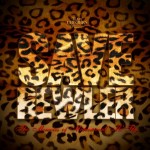Rugz D Bewler, Save Bewler: The Memoirs of Muhammad Mc’Fly

Someone on this humble blog once called Rugz D Bewler’s “Super Bad” a “truly terrible” track; a song with fantastic minimalist beats that unfortunately “can’t polish lyrical shits” spewed out by Mr. Bewler. That opinionated writer was speaking of Ski Beatz’ 24 Hour Karate School, from last year; some people, however (well, mainly Mr. Bewler’s people), took exception to that opinion. Rather than digress into a lengthy diatribe about the talentless hack that writes before you, Rugz D Bewler’s promotional crew have done the classy thing and submitted a copy of Mr. Bewler’s own Save Bewler: The Memoirs of Muhammad Mc’Fly for consideration. So, is Rugz D Bewler a talentless hack, or did he have a bad day in front of the mic?
Save Bewler: The Memoirs of Muhammad Mc’Fly is a mixtape — more or less a promotional album to generate hype for new artists. Don’t expect an inaudible blend of vocals and sloppy beats, though, as mixtapes now have much of the polish and glean of “official” releases. Considering that last year everyone from industry heavy hitters to underground phenoms released mixtapes, jumping into the game to try to build up a rep is a daunting task. After a short intro, Rugz D Bewler shows no sense of being intimidated, however, confidently making his case in “March of the Beautiful Soldier” by spitting, “Beware you’ve woken a man like Muhammad / Nothing like the prophet but trying to mimic his knowledge / Walks among kings, and women never deny him.”
Bewler certainly has no shortage of support from the hip-hop community. Ski Beatz composed most of the tracks, and a few guest appearances, most notably by the criminally underexposed Curren$y, add a bit of credibility to Save Bewler. From there begins a typically good-natured hip-hop affair with more than a few tracks about weed, women, and sometimes, like in “White Paper and Women,” a combination of both. While the topics aren’t new, Bewler rarely takes the easy route and honestly attempts to incorporate a bit of artistry into each track.
With songs like “Love Test,” he takes on the topic of relationships (which in the hip-hop world have a tendency to be overly sentimental or disturbingly sexual) honestly, appropriately combining both the successes and failures of relationships within the same breath. Better still are the gems found in “Thyself,” in which Bewler lays down, “Bewler got soul like a black family breakfast / Style over easy, nonviolent with a biscuit / Gritty in my city shit thick, Bisquick…. / Serve a family of eight, great, business / Peace, and I do hope you come back for revisits,” while describing his aspirations for his children as well as the difficulties of his current situation. That’s damn good. It’s this kind of poetic effort that’s there on every track, and even when some songs fall a little flat, there’s still an appreciation and respect for the effort.
It’s boring to live in an environment in which everyone agrees but worse still to live in one where people who do disagree don’t have the courage to speak up. With an open mind and a bit of civility, people who disagree can get along and sometimes come together to eventually agree. I still think “Super Bad” lacks any real effort, and in light of Save Bewler, it looks even worse. Quoting Hughes in “Renaissance,” however, Bewler says it best: “An artist must be free to choose what he does, certainly, but he must also never be afraid to do what he might choose.” There is poetry in what Bewler has done with Save Bewler, and there’s a huge future for him just as long as he has the courage to choose to approach his music with this sense of artistry.



Leave a Reply